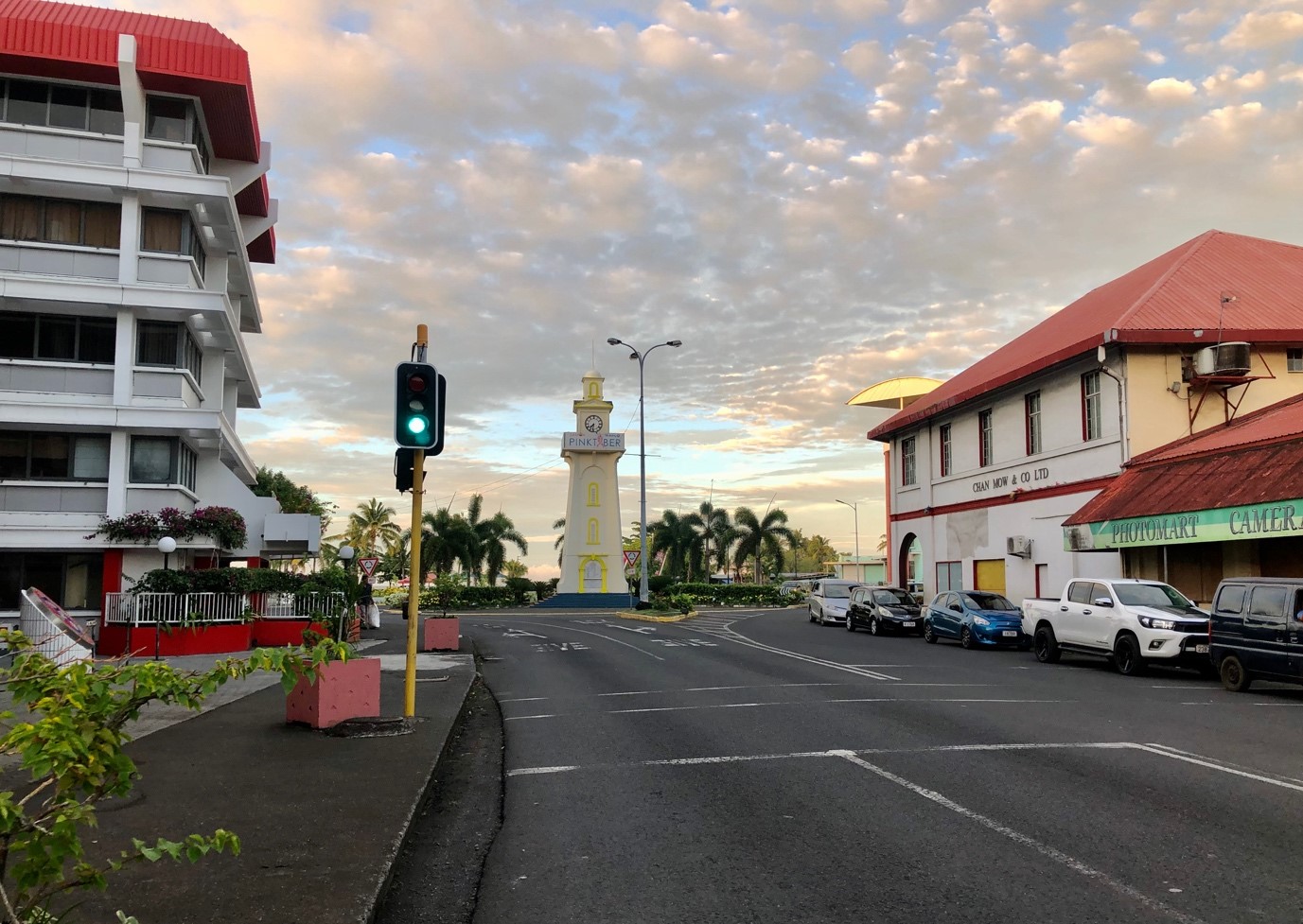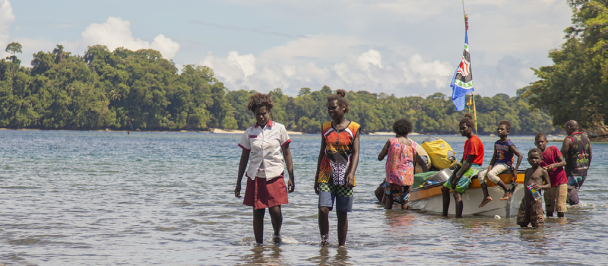Q&A with Jorn Sorensen, UNDP Resident Representative in Samoa (Multi Country Office for Cook Islands, Niue, Samoa & Tokelau)
The post-COVID-19 normal in the Pacific must be digital
June 27, 2020
The time is just right, as the Cook Islands, Niue, Samoa and Tokelau will be connected to a submarine fiber-optic cable in 2020-2021. UNDP Photo
1. What single issue do you think will make the most change for the future of development, and why?
This is the dawning of a new era for Samoa and the Pacific. Although there are no confirmed cases of COVID-19 in any of the four countries and territories our office is supporting, the restrictions on international travel and public transport, including the suspension of inter-island ferries, have triggered changes in social dynamics, suspended business operations and caused loss of employment, particularly in the tourism industry and in micro, small and medium-sized enterprises (MSMEs).
Some of those disruptions could have been minimized with effective digital solutions and infrastructure. For example, public administration services could be faster and more efficient in the case of a pandemic if essential meetings and processes were conducted virtually. Similarly, many business operations could be sustained with digital technology, including sales, using e-commerce platforms during lockdowns. To this end, we are working with the key national stakeholders on re-thinking and re-shaping their processes so that their organizations are more resilient to sudden shocks, such as a pandemic.
At the same time, everything we do supports our long-term strategy to achieve the Sustainable Development Goals, and our upgraded vision and offer of cooperation with Small Island Developing States (our SIDS Offer). As we move along, we are keeping an eye on the transition towards a blue economy, and inclusive and sustainable growth.
2. How can Samoa and other Pacific Small Island Developing State (and possibly the world) achieve that ambitious result?
Firstly, we must think outside our comfort zones and identify lessons learned in the health sector, digital finance, e-emergency response, e-agriculture, big data, online learning and digital government for an inclusive digital society. Impacts of the recent measles epidemic in Samoa and now the novel coronavirus have proven that digital transformation can play a pivotal role in the before, during and after recovery phases via e-solutions. This also creates opportunities for policy makers to be innovative and exploratory, scanning the horizon for new solutions. The time is right, as the Cook Islands, Niue, Samoa and Tokelau will be connected to a submarine fiber-optic cable in 2020-2021.
With this infrastructure in place, we are going to double our effort to engage in innovation, strategic policy, advocacy and partnerships, as well as digital finance – changing the way businesses and buyers behave by introducing e-solutions for agriculture, such as the use of drones, satellite imagery and GIS, and blockchains, as well as digital education and big data.
As we are part of the global UNDP knowledge network, our activities are plugged into the regional efforts in the Pacific, Asia and beyond. The Government of Samoa and leadership in the other Pacific SIDS have access to the UNDP network, as well as the whole UN system, and use it to their strategic advantage towards sustainable development.
3. What can we do as UNDP to help countries make this happen, in very concrete ways?
First, we had to assess the impacts of the COVID-19 pandemic in order to map out the crisis' adverse effects on the labour market, particularly the job losses in the tourism and hospitality sector. These early assessments found, for instance, that remittances – which are a significant part of Samoa’s earnings – are forecast to decrease by a minimum of 20 percent, as Samoans overseas are also affected by COVID-19 and are not able to send money home as frequently as before. This is further exacerbated by the fact that many Samoans who have worked for Recognized Seasonal Employment schemes overseas, are no longer able to do so.
UNDP can provide the technical expertise required for the socioeconomic recovery - from digital transformation to upskilling, from climate change programming to climate finance, and from social protection to governance. UNDP’s upgraded SIDS Offer helps us focus the transfer of knowledge as well as support the implementation of ambitious initiatives. Our track record shows UNDP is capable of large-scale results in the Pacific. For example, in partnership with 14 governments, the Global Environment Facility, the Forum Fisheries Agency, and others have helped transform the tuna fisheries sector in the Pacific. The participating 14 Pacific Islands are expected – for the first time ever – to have caught more fish last year in their waters than foreign fleets’ nets. This increased the GDP by $500 million, created 10,000 jobs, and has ensured that all four tuna species are fished sustainably.
4. What work is the Samoa Multi-country Office doing to achieve the above?
UNDP and UNCDF are working in partnership with SkyEye Samoa, an ICT/GIS company, to support the uptake of its e-commerce platform, Maua App, as a response to combat some of the economic effects of the COVID-19 crisis. The app allows registered vendors to upload their goods and services onto the Maua platform for potential buyers to purchase through digital payments in real time. The project will focus on reaching more customers and making the Maua App more accessible for vulnerable groups such as women, people with disabilities and rural communities.
UNDP procured online meeting platform licenses for all the Government Ministries in Samoa, and the majority of Government Ministries in Niue and Tokelau. Digital solutions have been employed to support the Government of Samoa’s business continuity plan, so that the disruptions caused by COVID-19 in daily government operations and public service delivery could be alleviated. Furthermore, efforts have been undertaken to better support the health sector in ensuring Samoan citizens are safe and prepared for health risks associated with COVID-19, through the adoption and utilization of technology. The same assistance was also extended to Niue and Tokelau which has led to greater interconnectedness and coordination. We are currently exploring the usage of drones from Samoa to Niue and Tokelau for urgent delivery of medicines and as an emergency response tool.
UNDP Samoa continues to work on other digital solutions projects as part of the COVID-19 response, such as supplying IT facilities for parliament, taking part in the Samoa Knowledge Society Initiative which acknowledges the right of access to information for all Samoans, and working with the Government to create a Digital Transformation Agency. Samoa’s first UNDP Accelerator Lab will be established later this year and will drive the experimentation of emerging technology and application of innovative solutions to meet strategic priorities of the Government to alleviate the impacts of COVID-19 across society.

 Locations
Locations




